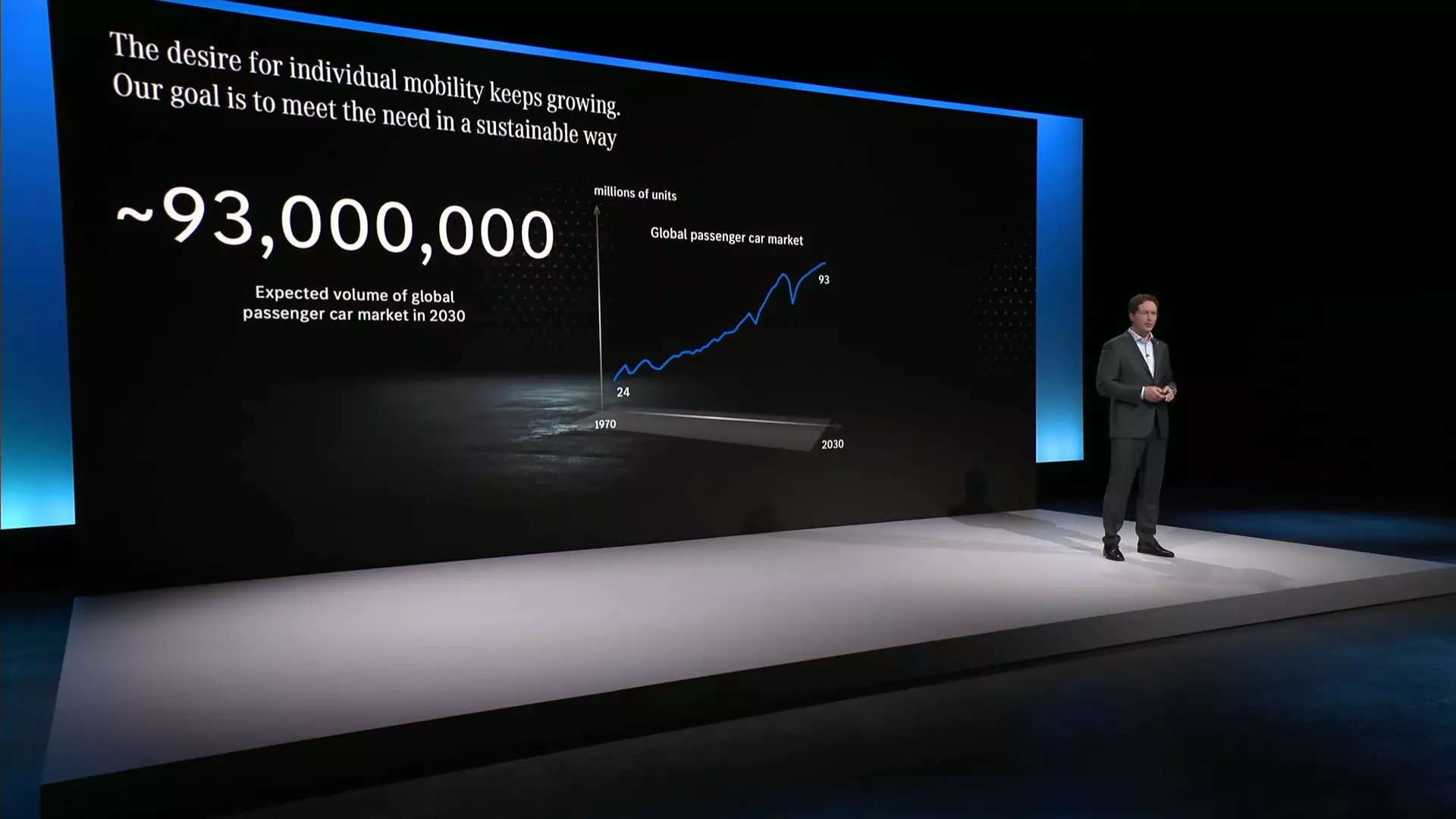
Mumbai: Mercedes Benz wants to have up to 50% of its sales volume from plug-in hybrids and BEVs (Battery Electric Vehicle) by 2025 on its journey toward going all-electric by 2030 ‘wherever market conditions allow.’
A major target for Mercedes Benz during this decade is to reduce CO2 emissions by 50% (compared to 2020 levels) in the life cycle of every car it produces, as announced by Ola Källenius, chairman, Mercedes Benz Group.
Under its ‘Ambition 2039’ plan, Mercedes Benz wants to be a CO2 neutral company, globally. “By 2030, we want to reach the halfway mark”, said Källenius. To achieve this target, some of the key levers Mercedes Benz has identified are, electrification of its portfolio, green energy for electric vehicle (EV) charging, battery technology improvisation, ‘extensive’ use of recycled materials, and renewable energy in its manufacturing network.
Mercedes Benz plans to meet over 70% of the energy needs of its manufacturing sites through renewable energy by 2030, and through Power Purchase Agreements.
“Creating truly sustainable vehicles is an enormous task,” Markus Schäfer, Board Member and CTO, Mercedes Benz Group, said at the OEM’s first ESG (Environment, Social and Governance) conference. To achieve the task, the targets and strategies have to be significant enough, he added.
Green Supply Chain
On the vehicle production side, Mercedes Benz plans to enhance the share of green metals used to build vehicles. It is setting up a green steel supply chain, starting 2025, to increase the use of low-CO2 and zero‑CO2 steel.
As the electrification megatrend grows, the battery becomes a critical component in the sustainability level of the value chain. Mercedes Benz, which targets to more than double its annual BEV sales this year, sees it as the ‘biggest lever for reducing CO2’. According to the OEM, supply chain and production account for more than half of the lifecycle CO emission level in the EU with its current electricity mix. It estimates that by transitioning to CO2-neutral cell production, it is possible to cut emissions for the production of the entire battery pack by 20 percent.
Mercedes-Benz plans to use LFP (Lithium Iron Phosphate) batteries in its series-production vehicles as these batteries have a cobalt-free cathode. Together with research partners the OEM is also working on solid-state batteries.
The company says it is starting a CO2-neutral recycling factory in Kuppenheim, Germany, to recycle end-of-life electric vehicle batteries using a new hydrometallurgical technique which increases the recycling rate to 96%.
Through the adoption of a circular economy approach, Mercedes-Benz plans to increase the proportion of secondary aluminium it uses. The criteria for responsible sourcing and processing by its suppliers, irrespective of the source country, till delivery at Mercedes Benz plants, is initially applicable only for plants in Europe. Mercedes Benz says it will be rolled out to other locations outside Europe in the medium term.
In what could be a message to component industry players globally, Källenius said, “If you want to do business with us in the future, you need to have a sustainable business strategy. Another key criterion is human rights to be respected by partners and suppliers.”
ETAuto reported in October last year about this strategy by Mercedes Benz to build a supply chain scoring high on sustainability. Schäfer said that suppliers of 90% of Mercedes Benz’s annual purchase volume have signed the agreement to go carbon neutral.
“Having achieved CO2 neutral production at our own plants in 2022, we will keep doubling down on increasing and deepening the level of sustainability at Mercedes Benz,” Jörg Burzer, Board member responsible for production and supply chain management, Mercedes Benz, said. The target for Mercedes Benz is to meet over 70% of its energy needs through renewable sources by 2030.
The plans have been laid out, and Mercedes Benz is banking on its team of 172,000 employees across its operations to be a truly sustainable organization. “Only with them can we reach our goals and bring our strategies to life,” Sabine Kohleise, Mercedes Benz’s Board member responsible for HR, and Director, labour relations, said. Kohleise is among the 3 female Board members at Mercedes Benz. Pretty much in the same ratio, the OEM plans to have 30% women in senior management positions by 2030.
Even as a manufacturer it may have control over its own operations and that of its associates. Industry players, including Mercedes Benz, will need the cooperation of more parties to succeed in achieving absolute carbon neutrality and arresting environmental deterioration. “In order to make faster progress in protecting the climate we need maximum dedication and more collaboration among governments, companies and society as a whole, ” Källenius said.
Also Read:

















